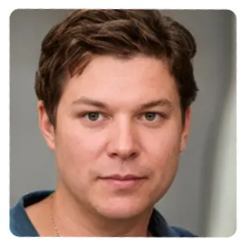Philosophy
Education. The faculty believe that education is a dynamic, ongoing process that aims to stimulate intellectual curiosity and to help each individual realize his or her full potential. All people should have the opportunity to continue their education to the fullest extent of their aspirations and abilities. Optimal learning is achieved when the environment offers mutual respect, acceptance of differences, freedom of inquiry and expression, and satisfaction of learning needs. The faculty see their role as that of facilitators of the learning process. The faculty also believe that individual differences among students should be considered when planning and implementing the curriculum. Each student is given the opportunity to grow in knowledge, understanding, and skills through involvement in meaningful, sequentially arranged learning experiences.
Nursing is the science and practice that promotes a person’s adaptation to achieve integration with his/her environment during health and illness. The goal of nursing is to promote adaptation in a person’s physiological and psychosocial modes, thereby contributing to the person’s health, quality of life and/or dying with dignity. Nurses intervene in situations when the person exhibits actual or potential ineffective responses to environmental stimuli by utilizing the nursing process.
Person includes people as individuals or in groups. Each person is a unique being worthy of respect and dignity that possesses physical, social, psychological, spiritual, and cultural attributes. As a dynamic adaptive system, the person is in constant interaction with an ever-changing environment, continually adapting to environmental stimuli. In the process of satisfying basic physiological and psychosocial needs, the person learns and develops behaviors which strongly influence his or her adaptive responses.
Environment is defined as all conditions, circumstances, and influences surrounding and affecting the development and behavior of persons and groups.
Health is defined as a state and a process of being and becoming an integrated and whole human being. Health is a reflection of adaptation that is influenced by the nature of external as well as internal environmental stressors. Health is influenced by an individual’s adaptation to stressors. An individual’s response to stressors may be adaptive and/or ineffective in meeting basic needs and will determine the need for nursing intervention.
Nursing Education. The faculty believe that all persons are entitled to optimum healthcare. The faculty believe this is a basic human right which should become one of our nation’s high-priority goals. The faculty believe that nursing is essential to the health delivery system in achieving this goal. Since modern nursing encompasses an increasingly broad range of knowledge and skills, it can best fulfill its obligations to society by preparing different levels of nurses. These range from the licensed practical nurse to the doctorally prepared nurse.
Licensed Practical Nurse. The licensed practical nurse, under the direction of a registered nurse, is prepared to give basic nursing care. The faculty believe knowledge acquired by the practical nurse is basic to all nursing. When verified by licensure and skills competency, practical nursing constitutes a valid basis for awarding advanced standing to persons who wish to continue their studies towards the associate degree in nursing.
Associate Degree Registered Nurse. The associate degree graduate from Helene Fuld College of Nursing possesses knowledge drawn from the biophysical and psychosocial sciences and the humanities. As a participating member of the healthcare team, the graduate is able to apply this knowledge to the nursing process in the care of diverse client populations.
Baccalaureate Degree Nurse. The Bachelor of Science (BS) degree graduate from Helene Fuld College of Nursing is prepared to assume a leadership role as a member of the healthcare team. The BS graduate integrates knowledge from the liberal arts and sciences, and advanced nursing theory, to care for and educate diverse clients and communities.


